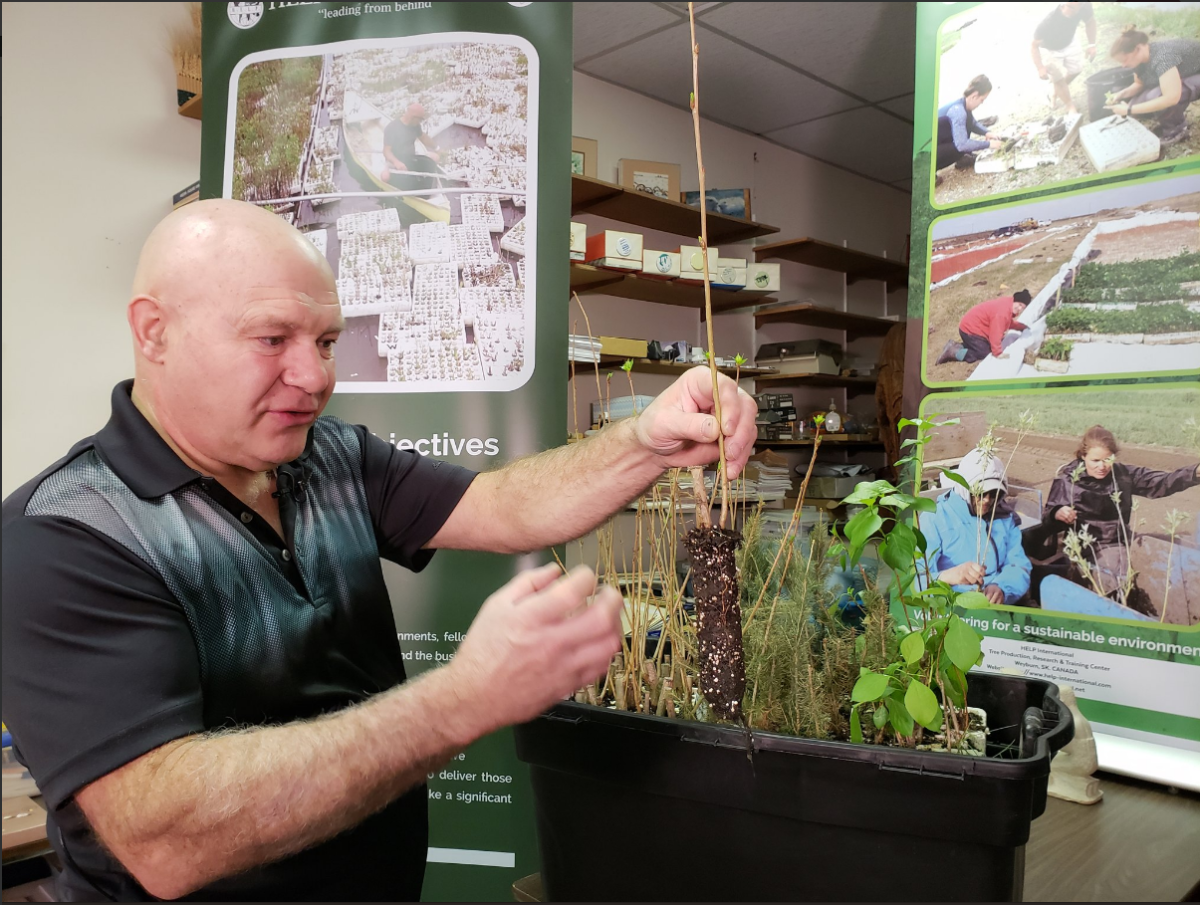Rodney Sidloski spent most of his career researching tree production and planting techniques in Africa and Canada, through his charity organization HELP International. It’s how he came across a way to plant a tree for less than two pennies.

“For anyone that wants to plant a tree, they shouldn’t be stopped by any financial constraint,” Sidloski said.
The Floating Tree Production System uses common nursery materials, like a Styrofoam block container. Instead of irrigating from the top, the containers float for months in water. Sidloski patented the system.
“You can live store them for many years even, they can float all summer and go to sleep and hibernate and be frozen solid in the water surface,” Sidloski said.
Sidloski added the trees can also survive the winter in system.
“If we had taken them out harvested and kept them in an unheated building we loose about 15 percent, but in solid ice we don’t lose one,” Sidloski said.
Sidloski also found the floating tree nursery uses less water and maintenance compared to traditional nurseries.
“It came down to the trees were using 4 ml of water per day, per tree. That means if I got it right, 250 trees will use one liter of water,” Sidloski explained. “Compared to conventional greenhouses, that’s 93.5 per cent less water consumption.”
It’s exciting to University of Regina biology professor Daniel Gagnon. He has spent many years studying trees and has never seen anything like Sidloski’s invention.

Get breaking National news
“I think it’s ideal and works very well in the tropics, people who don’t have a lot of resources or the government won’t supply them with plants, that’s fantastic” Gagnon said.
Seeing the seedlings grow in floating nurseries in warmer climates fit into Sidloski’s plan.
“For parts of the world like the Arab states that are in water crisis constantly, (or) California that’s using finite aquifers that are receding that don’t recharge for 100-thousands of years, places like that. This will be (an) extra great service to people where water is a premium.” Sidloski said.
Through HELP International and the United Nations Development Programme, Ghana, Africa, will see a one-million seedling floating nursery this summer.
“We want to know that our lives made a difference, doesn’t every human being want to know that our lives made a difference?” Sidloski said.
Sidloski also hopes his idea will continue to flourish and be seen world wide.
“I hope this wins me a Nobel Prize,” Sidloski said.






Comments